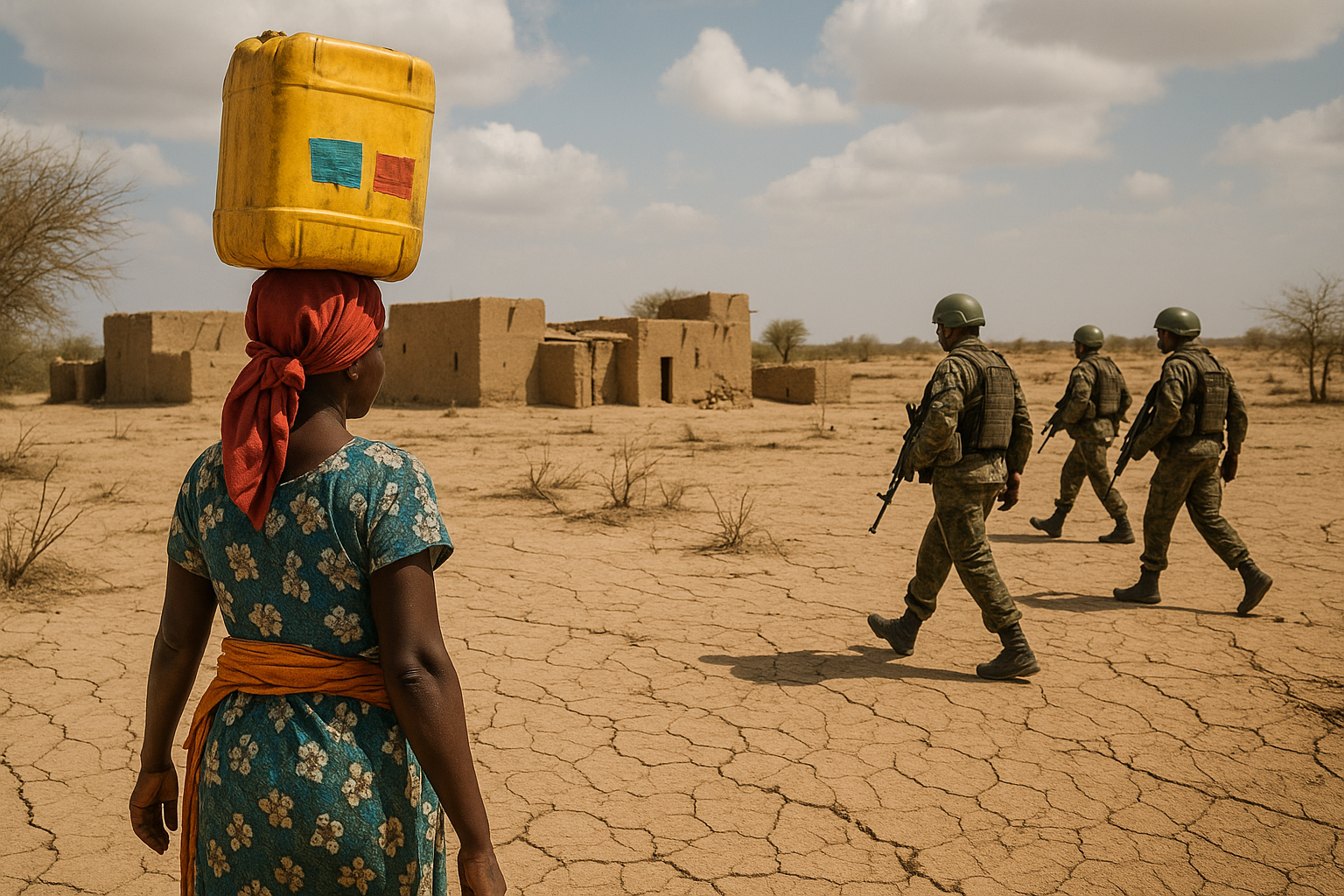Mali Faces Climate and Conflict Storm, Urged to Strengthen Social Protection Systems
A UK-funded report reveals that Mali’s social protection system is ill-equipped to handle compounding crises of climate shocks, conflict, and food insecurity. It calls for stronger disaster risk financing, expanded safety nets, and better coordination between government and humanitarian actors.

A new diagnostic report prepared by the Centre for Disaster Protection and funded by the UK government in support of the World Bank’s Sahel Adaptive Social Protection Program paints a stark picture of Mali’s growing vulnerability to climate-related disasters and conflict. The report details the fragmented and underfunded nature of Mali’s social protection and disaster risk financing systems, highlighting the need for more robust, shock-responsive mechanisms that can support vulnerable populations before, during, and after crises.
Disasters Pile On: From Drought to Displacement
Over the past two decades, Mali has experienced increasingly frequent and severe droughts, floods, and food insecurity, exacerbated by violent conflict and population displacement. Droughts remain the most impactful hazard, with major episodes in 2005, 2011, and 2020 each affecting millions. Floods are more frequent but often less deadly, though they still disrupt infrastructure and livelihoods, particularly in urban centers like Bamako and the Inner Niger Delta. The country’s conflict dynamics have worsened dramatically since 2012, spreading from northern regions to central Mali, especially Mopti and Ségou. By 2023, nearly 400,000 people were internally displaced, with many fleeing violence and food insecurity. These overlapping shocks have created complex risk patterns, where climatic hazards, economic precarity, and insecurity combine to undermine resilience.
Farming on the Edge: Agriculture in the Eye of the Storm
Agriculture, the backbone of Mali’s economy, employs over 80% of the population and contributes nearly 40% of GDP. However, it is largely rain-fed and therefore extremely vulnerable to rainfall variability and temperature extremes. With climate change accelerating, average temperatures in Mali are projected to rise by up to 4.6°C by 2080, threatening the productivity of key food crops like millet, maize, and sorghum. Southern Mali, where most agricultural production occurs, faces recurrent flooding, while the northern and central regions suffer from chronic drought and conflict. These environmental stresses intensify competition over natural resources, fuelling intercommunal tensions between farmers and pastoralists.
Safety Nets Full of Holes: A Patchwork of Protection
The country’s social protection system is thinly spread and largely dependent on donor funding. Only 22% of the population receives any form of social protection, with rural and northern areas being the most underserved. The government’s flagship Emergency Social Safety Net Program, Jigiséméjiri, initially focused on food insecurity in southern regions, has expanded to incorporate adaptive elements such as cash-for-work and income-generating activities. Despite reaching over 576,000 individuals by 2023, its reach remains limited compared to need. The Unified Social Registry (RSU), developed to consolidate data on vulnerable households, is promising but underutilized, with poor data-sharing and limited coverage in hard-to-reach areas.
Money Matters: Financing Gaps and Donor Dependence
Government-led initiatives remain constrained by low fiscal space, limited risk assessment capacity, and institutional fragmentation. Mali’s budget deficit has hovered near 5% of GDP since 2021, and public debt surpassed 52% of GDP in 2022. Domestic risk financing instruments, such as the Food Security Fund and the National Solidarity Fund, are either undercapitalized or operationally weak. Risk transfer instruments like the African Risk Capacity (ARC) drought insurance policy and agricultural index insurance schemes exist, but payout records and integration with government programming remain limited. Most response funding comes through international humanitarian assistance, with WFP, UNICEF, and UNHCR delivering food aid, cash transfers, and protection services, especially in areas where government access is restricted.
Toward a Resilient Future: A Call for Bold Coordination
The report underlines that humanitarian aid has increasingly shifted toward cash-based transfers, with WFP delivering such assistance to over 2.7 million people in 2022. This shift presents an opportunity to align humanitarian mechanisms with national social protection systems. However, coordination gaps persist, particularly between government response plans such as the National Response Plan (PNR) and UN-led Humanitarian Response Plans (HRPs). While both use tools like the Cadre Harmonisé to assess food insecurity, there is little integration of funding, delivery platforms, or data systems. To address these challenges, the report calls for strategic improvements in Mali’s disaster risk financing and social protection systems. It recommends strengthening government capacities to assess and budget for contingent liabilities from disasters, scaling up the RSU for better targeting, and institutionalizing pre-arranged financing instruments that can be rapidly triggered. The Jigiséméjiri program should be expanded to cover high-risk regions, using conflict-sensitive targeting mechanisms. Multi-hazard trigger systems should be developed to anticipate and respond to complex shocks, and insurance markets for cash crops should be supported to provide income protection for smallholder farmers. Ultimately, the report argues that Mali’s vulnerability is not only a function of hazards but of institutional limitations and fragmented financing. It urges a shift toward anticipatory, coordinated, and adaptive systems that blend humanitarian and development approaches. Investing in such systems will not only reduce the human cost of disasters but also enhance the long-term resilience of communities, enabling them to withstand future shocks with greater dignity and stability.
- READ MORE ON:
- World Bank
- Mali
- droughts
- Inner Niger Delta
- Bamako
- WFP
- UNICEF
- UNHCR
- National Response Plan
- FIRST PUBLISHED IN:
- Devdiscourse










